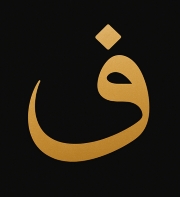I do call to witness the Resurrection Day; And I do call to witness the self-reproaching Spirit.(Qur'an 75:1-2)
Reincarnation in Islam: A Quranic Perspective
Abstract
This paper presents a comprehensive analysis of the concept of reincarnation within the Islamic theological framework. It argues that the Quran, contrary to mainstream Islamic belief, contains verses that support the doctrine of the soul's rebirth. This paper will examine six specific verses that, when interpreted esoterically, provide a foundation for a reincarnationist understanding of Islamic soteriology. Furthermore, it will address the logical and theological challenges posed by the traditional one-life doctrine, particularly in relation to divine justice and the salvation of those who die without knowledge of Islam. Finally, this paper will re-examine the concept of Al-Qiyamah (The Resurrection) and argue that a reincarnationist perspective offers a more coherent and intellectually satisfying interpretation of the Quranic message.

